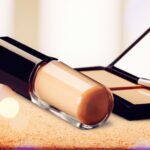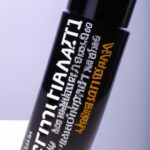What Does Evaluating Cosmetic Efficacy Involve?
When it comes to evaluating the efficacy of makeup, beauty products, and other cosmetics, there are a number of factors to consider. The most important aspect of this process is understanding the active ingredients of the products and their effects on the skin. A thorough evaluation of cosmetics and related products includes studying their applications and benefits, as well as potential risks associated with their use.
Evaluating cosmetic efficacy involves carefully assessing the quality, safety, and performance of each product to be sure it lives up to its claims. Evaluations typically consider the overall quality of the cosmetic or skin care product, its effectiveness in achieving desired results, and any potential side effects. Additionally, regulating organizations may take into account environmental factors related to production and sustainability.
Elements of Cosmetic Evaluation
The process of evaluating cosmetics and related products can vary from simple to complex. Analyzing a product’s efficacy involves an in-depth analysis of the following:
Ingredients
The key element in evaluating cosmetic efficacy is understanding the formulation and discerning the active ingredients used. Inspecting the ingredient list for toxic substances is especially important for products that are applied directly to the skin or broken parts of the body.
Aesthetic Quality
Evaluation of a product’s aesthetic quality includes consideratio n of its texture, color, and overall look. This factor is especially important in products used to enhance the appearance of the skin, such as lotions, creams, and other complexion-focused cosmetics.
Performance
The performance evaluation measures a cosmetic or skin care product’s ability to provide its desired function. For example, the efficacy of an anti-aging serum is based on whether or not it actually reduces the appearance of wrinkles and fine lines.
Safety
The safety of a product is determined by examining potential adverse reactions and potential risks associated with its usage. The risk associated with a cosmetic or skin care product can differ between users, so it is important to consider individual needs when selecting a product.
Manufacturing Practices
In addition to evaluating the product itself, good manufacturing practices are also taken into consideration when evaluating cosmetics. This includes examining the production process and determining if it meets accepted quality standards and guidelines.
Who Can Evaluate Cosmetic Efficacy?
The process of evaluating cosmetic efficacy is often delegated to qualified professionals, such as dermatologists and other qualified skin care specialists. In some cases, an independent laboratory may be called upon to assess the quality and safety of a cosmetic product. Laboratories typically perform a series of tests on products to evaluate their effectiveness and safety.
The cosmetics industry is subject to regulation standards set by various governmental and international organizations. These guidelines are designed to ensure that the products being made and marketed to consumers meet the highest possible standards. Companies must ensure that any product labeled “hypoallergenic” or “all natural” passes tests for safety and efficacy on a regular basis.
Factors To Consider When Evaluating Cosmetic Products
Whether you are purchasing a product off the shelf or having it custom-made by a professional, there are several factors to consider when evaluating cosmetics.
Know Your Skin
It is always important to know your skin type and the specific needs it has. Products formulated for aging skin or dry skin may not be appropriate for those with sensitive skin. Be sure to read the product’s label carefully to determine if it is right for you and your skin type.
Know Your Ingredients
Read the ingredient list of any product you are considering purchasing to fully understand the formulation. Some ingredients can be beneficial for certain skin types and conditions, while others may cause irritation or other adverse reactions.
Seek Professional Advice
If you have a skin condition, or if you would just like some professional guidance when selecting a cosmetic product, it may be beneficial to seek advice from a qualified dermatologist or skin care practitioner. They can provide personalized advice to help you make an informed decision.
Check For Certifications
When selecting a product, you may also want to ensure that it is certified by a third-party organization such as the Safe Cosmetics Act or Environmental Working Group. Such certifications provide an extra seal of safety assurance that the product has been thoroughly tested for efficacy and does not pose any potential health risks.
Evaluate Results
When using a cosmetic product, it is important to evaluate the results. Make sure to note any changes in your skin tone or texture, and report any irritation or other adverse reactions to your dermatologist or other qualified health care provider if necessary.
FAQs
What are the primary objectives of evaluating cosmetic efficacy?
The primary objectives of evaluating cosmetic efficacy are to assess the quality, safety, and performance of a product to make sure it lives up to its claims and that it does not pose any potential health risks.
Who typically evaluates cosmetics?
Evaluating cosmetics is typically delegated to qualified professionals such as dermatologists and other skin care specialists, as well as independent laboratories which perform tests to evaluate the safety and effectiveness of products.
What should I consider when selecting a cosmetic product?
When selecting a cosmetic product, it is important to consider your own skin type and specific needs, understand the ingredients used in the product’s formulation, seek advice from a qualified skin care practitioner if necessary, ensure that the product is certified by a third-party organization, and evaluate the results once the product is being used.
The Importance of Third-Party Certifications in Cosmetic Evaluation
In the realm of cosmetic evaluation, third-party certifications play a crucial role in ensuring the safety, efficacy, and quality of cosmetic products. These certifications provide consumers with an extra level of assurance that the products they use have undergone rigorous testing and meet established standards. When considering a cosmetic product, it is important to look for certifications from reputable organizations such as the Safe Cosmetics Act or Environmental Working Group.
Benefits of Third-Party Certifications:
- Enhanced Safety Assurance: Third-party certifications validate that a cosmetic product has been thoroughly tested for potential health risks. They assure consumers that the product meets specific safety standards and does not contain harmful ingredients.
- Quality Assurance: Certifications indicate that a cosmetic product has met stringent quality criteria. These criteria can include factors such as ingredient sourcing, manufacturing processes, and adherence to good manufacturing practices.
- Independent Verification: Third-party certifications are conducted by independent organizations that have no vested interest in the product’s success. This impartial evaluation adds credibility to the claims made by the manufacturer.
- Efficacy Validation: Certifications often involve testing the product’s effectiveness in achieving its intended purpose. This validation ensures that the product delivers the promised results and performs as expected.
It is worth noting that the certification requirements may vary depending on the specific organization and the type of product being evaluated.
The Role of Certification Organizations:
Organizations such as the Safe Cosmetics Act and Environmental Working Group are dedicated to ensuring the safety and efficacy of cosmetic products. They establish guidelines and standards that manufacturers must adhere to in order to obtain certification. These organizations often conduct extensive testing and evaluation to determine the product’s compliance with their set criteria.
Consumer Empowerment:
Third-party certifications empower consumers to make informed decisions when selecting cosmetic products. By choosing products with reputable certifications, consumers can have confidence in the safety and effectiveness of their choices. These certifications serve as a reliable guide, especially for individuals with specific skin concerns or sensitivities.
Remember, it is important to carefully examine the product’s packaging and marketing claims to ensure that the claimed certification is genuine and not misleading.
Continual Evaluation and Monitoring:
Cosmetic products undergo periodic reevaluation to maintain their certifications. This ongoing evaluation ensures that manufacturers continue to meet the required standards. Regular monitoring helps to identify any changes in ingredients, formulation, or manufacturing processes that may affect the product’s safety or efficacy.
The Power of Informed Decisions:
By considering third-party certifications when evaluating cosmetic products, consumers can make choices that align with their values and needs. These certifications not only contribute to the overall safety and effectiveness of the products but also promote transparency and accountability within the cosmetics industry.
In conclusion, third-party certifications are vital in cosmetic evaluation as they provide an additional layer of assurance regarding the safety, efficacy, and quality of products. By prioritizing certified products, consumers can confidently select cosmetics that meet their specific requirements and contribute to their overall well-being.






